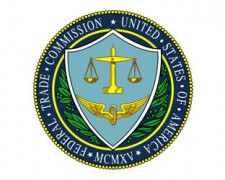 The Federal Trade Commission spent more time discussing privacy issues that mobile application developers need to be aware of – but it also reminded them in no uncertain terms to be truthful in their advertising messages and obvious in their disclaimers.
The Federal Trade Commission spent more time discussing privacy issues that mobile application developers need to be aware of – but it also reminded them in no uncertain terms to be truthful in their advertising messages and obvious in their disclaimers.
The FTC published its advice in a new piece called “Marketing Your Mobile App: Get It Right from the Start.” FTC provided the following outline of its contents.
* Tell the Truth About What Your App Can Do. – “Whether it’s what you say on a website, in an app store, or within the app itself, you have to tell the truth,” the publication advises;
* Disclose Key Information Clearly and Conspicuously. – “If you need to disclose information to make what you say accurate, your disclosures have to be clear and conspicuous.”
* Build Privacy Considerations in From the Start. – Incorporate privacy protections into your practices, limit the information you collect, securely store what you hold on to, and safely dispose of what you no longer need.
* “For any collection or sharing of information that’s not apparent, get users’ express agreement. That way your customers aren’t unwittingly disclosing information they didn’t mean to share.”
* Offer Choices that are Easy to Find and Easy to Use. – “Make it easy for people to find the tools you offer, design them so they’re simple to use, and follow through by honoring the choices users have made.”
* Honor Your Privacy Promises. – “Chances are you make assurances to users about the security standards you apply or what you do with their personal information. App developers – like all other marketers – have to live up to those promises.”
* Protect Kids’ Privacy. – “If your app is designed for children or if you know that you are collecting personal information from kids, you may have additional requirements under the Children’s Online Privacy Protection Act.”
* Collect Sensitive Information Only with Consent. – Even when you’re not dealing with kids’ information, it’s important to get users’ affirmative OK before you collect any sensitive data from them, like medical, financial, or precise geolocation information.
* Keep User Data Secure. – Statutes like the Graham-Leach-Bliley Act, the Fair Credit Reporting Act, and the Federal Trade Commission Act may require you to provide reasonable security for sensitive information. The FTC has free resources to help you develop a security plan appropriate for your business.





